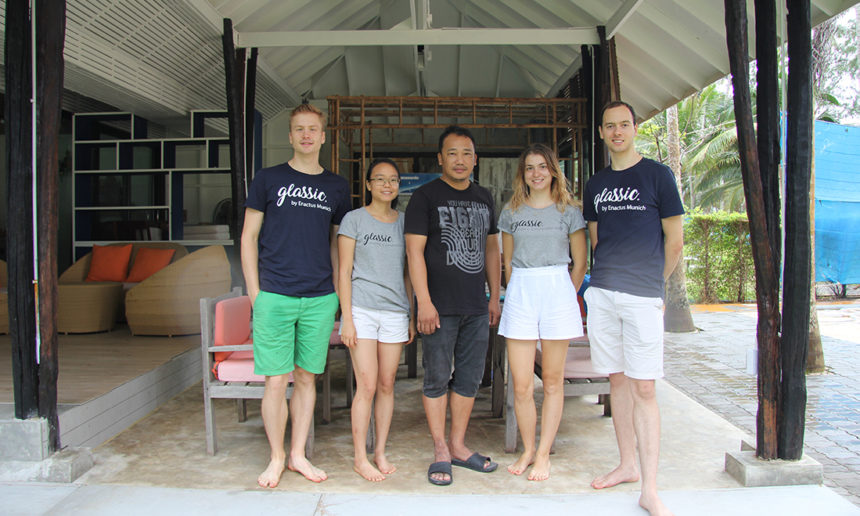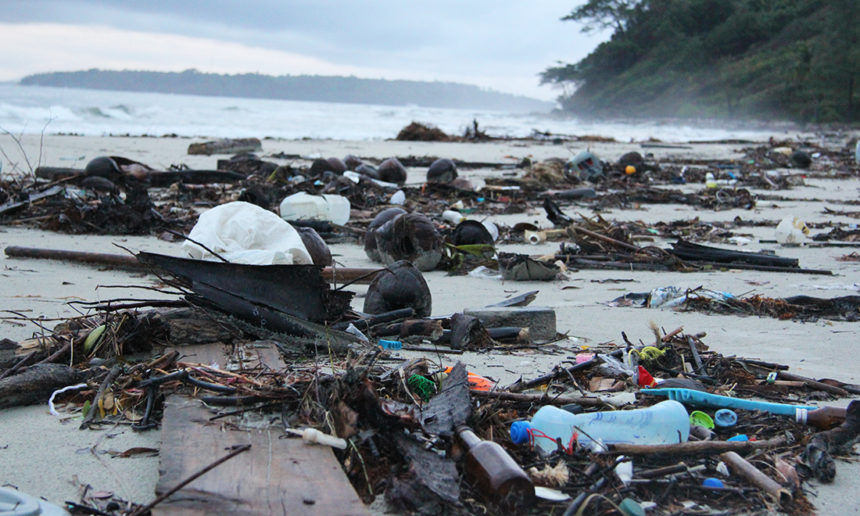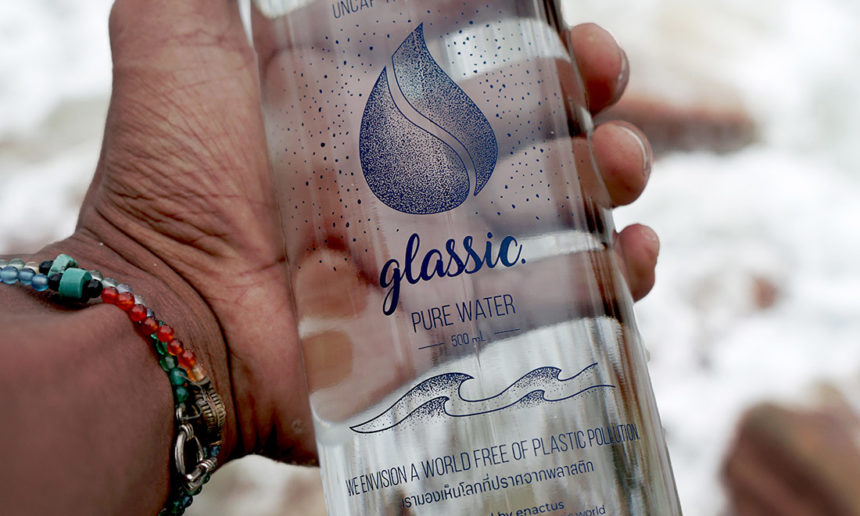Export of a good idea
With their start-up Glassic, the students of TU Munich are bringing two worlds together in an innovative way. Thailand is considered the sixth largest polluter of the oceans with plastic waste. It is estimated that around 750 million individual pieces of plastic wash up on Thailand’s beaches every year; many of them from the country itself. And Germany is considered one of the leading nations when it comes to the consistent implementation of returnable deposit bottles.
The students take this model to Asia. They have chosen the island of Ko Kut in the Gulf of Thailand, which is visited by both Thai and international tourists, as a pilot. Up to now, drinking water has mainly been imported in disposable bottles from Bangkok. A first batch of 18,000 returnable bottles has already been produced, and a site has been found for local drinking water bottling and cleaning of the bottles. If each bottle makes three rounds a month, half a million bottles a year can be sold, saving 11 tonnes of plastic and 66 tonnes of CO2.
The start-up is a project of Enactus Munich and thus part of the world’s largest student social entrepreneurship network. The team won the Gexsi Impact Challenge Award at the Enactus Germany Startup Accelerator Pitches in November 2020. The plan is to spin off glassic in Germany as a non-profit company. They would then use the proceeds to launch further activities, such as ocean clean-up campaigns, in order to fulfil their mission – combating plastic waste in the oceans – even more effectively. Ko Kut is also only a first pilot region. It is conceivable that the model could be expanded to many other regions through a social franchise system.
Glassic is also a participant in the current “Race to Rethink Plastic” Challenge. We are keeping our fingers crossed!
How to change the world with a bottle? Watch this video:
How Glassic contributes to the 17 Global Goals
Life below Water
Avoiding plastic waste on Thailand’s coasts; Ocean Clean-up actions
Responsible Consumption and Production
Local production of drinking water in returnable bottles as a contribution to the circular economy
Climate Action
Saving 66 tonnes of CO2 annually with the initial set of 18,000 returnable multi-trip bottles
Clean Water and Sanitation
Production of clean drinking water, locally on site
Decent Work and Economic Growth
Fair jobs for local bottling, cleaning and marketing.
Project Assessment
You can access the full project assessment here:
Images
Your Feedback
How do you like the project? Give us feedback!





